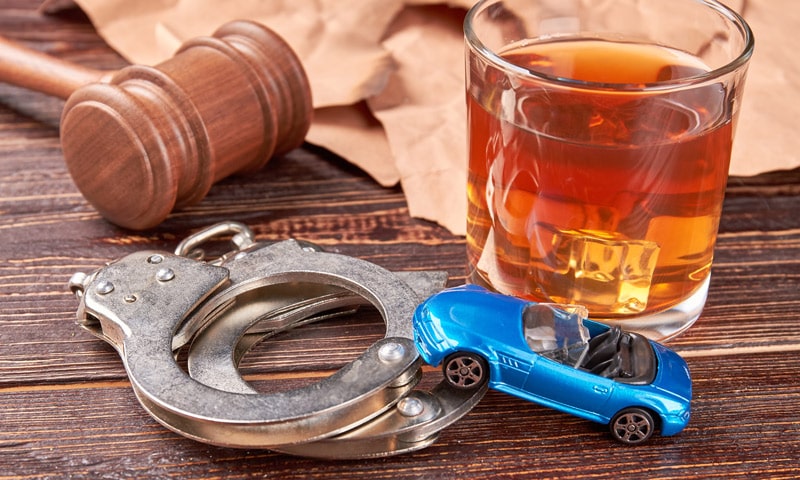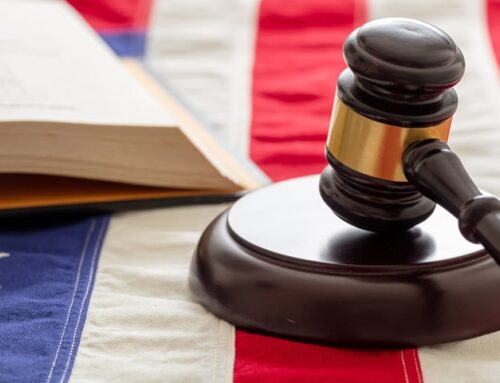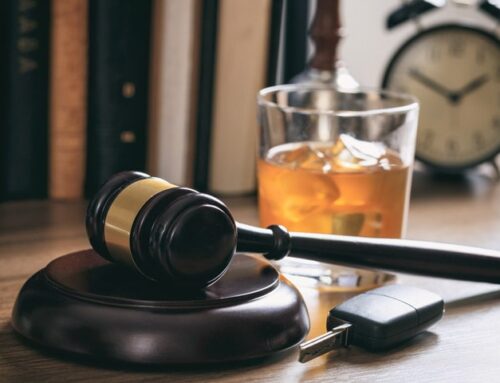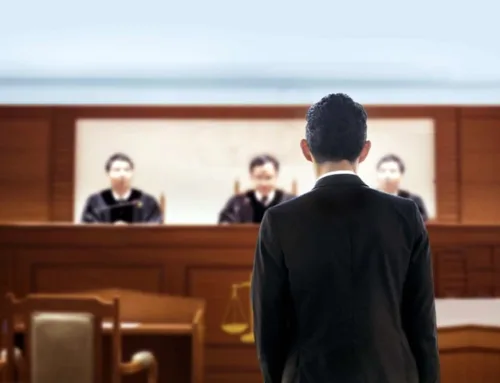Top 5 Defenses Against a DUI Charge
- Improper stop
Under the Fourth Amendment to the U.S. Constitution, every person is protected against unreasonable searches and seizures. In interpreting this amendment, the courts have held that before a police officer may pull over a vehicle, the police officer must have a “reasonable suspicion” that the driver is committing a crime. However, if the police officer merely has reasonable suspicion and not probable cause, then the officer may not detain the individual, and the individual is free to leave at any time. In order to lawfully arrest anyone, the police officer must have probable cause to believe that the individual has committed a crime. Because of this interpretation, the most common defense to a DUI charge is that the police officer did not have the requisite “reasonable suspicion” to pull over the individual charged, and/or the police officer did not have the requisite probable cause to justify a chemical test of the individual. Arguing that the officer did not have the requisite reasonable suspicion to pull over someone can sometimes be a difficult argument. Since a police officer has the authority to pull over anyone for ANY traffic violation, even a slight violation will be enough to constitute reasonable suspicion sufficient to pull over the individual. Probable cause, however, may be an easier argument since it requires a higher showing that there was actually a crime committed. When arresting an individual and requesting them to take a chemical test, police officers usually base their probable cause upon the person’s appearance and, if field sobriety tests are administered, their ability, or inability, to perform these tests. Some cues that police officers often look for include red and watery or glassy eyes, slurred speech, difficulty exiting the vehicle, inconsistencies in their statements, and a failing of the field sobriety tests.
- Field Sobriety Tests were administered inaccurately
Field sobriety tests are usually performed near where the individual was initially pulled over. The common field sobriety tests utilized are: the horizontal and vertical gaze nystagmus (HGN) test, the walk and turn test, and the one-legged stand test. The last two tests must be performed on dry, even surfaces in order to be accurate. Therefore, the accuracy of these tests may be challenged where the weather has been bad causing a wet surface, or where the surface is uneven or full of debris. The HGN test must be performed without flashing lights on the individual’s face. Therefore, if the officer forgets to turn off the emergency lights that are facing the individual, the accuracy of the test can be challenged. Each test has a set protocol for how to properly perform each test, and if the officer varies at all from these protocols, the accuracy of these tests can be questioned, often successfully. Furthermore, if the officer has not been properly trained in administering these tests, the accuracy of the testing can be challenged.
- Breathalyzer machine was not maintained/was inaccurate
If a breath test is administered, instead of a blood or urine test, then the individual may challenge the accuracy of the results. There are multiple ways to do this, however, the most common include challenging: the officer’s ability and training to use the machine, the accuracy of the test due to intervening factors, and the maintenance and calibration of the machine. The first of these, challenging the officer’s ability and training to use the machine, is often a futile defense since police officers usually will not utilize a machine that they have not yet been trained on. However, it is an easy thing to check and see if the officer has received the requisite training, and if not, to challenge the accuracy of the test in court. Intervening factors that could affect the accuracy of a breath test include whether the individual had previously been vomiting and whether the individual has indigestion. While both sides can produce experts to testify about this topic, there is some science that shows that indigestion within an individual can cause a breath test to produce a false positive for alcohol. While not all courts accept this argument, some courts are more receptive towards these types of arguments than others. The best way to challenge the accuracy of a breath test is to introduce evidence that the machine was not properly maintained, or that the machine was not calibrated prior to utilizing it. Police stations will often keep maintenance records showing the last maintenance date of the machine, and these records can be requested by the defense. Therefore, if a machine has not received the required maintenance, the accuracy of the entire test can be called into question.
- Chain of custody defense
This defense is only used when a blood test is administered to the individual charged, or when a substance was taken from the individual to be tested for the presence of drugs. When police officers take a blood sample, or seize evidence of drugs from the individual, they must take steps to insure that the sample/evidence is not contaminated and is not mislabeled. In order to do this, the sample/evidence usually will be sealed within labeled packaging and have a “chain of custody form” attached to the outside of the package. The chain of custody form must be filled out whenever a new person takes custody of the sample/evidence. If the chain of custody form is missing, or if it appears the sample/evidence was somehow tampered with or contaminated, then the individual can claim that any results from the testing of the sample/evidence are unreliable and should not be allowed in court. If the prosecution cannot prove that the sample/evidence followed the proper chain of custody, then the court will usually suppress the best evidence the prosecution has to prove that the individual had alcohol or drugs in their system.
- Affirmative Defenses
Affirmative defenses are defenses that the person being charged must bring up in court and must offer evidence of the defense. The affirmative defenses available to a DUI defendant include: necessity, duress, entrapment, and involuntary intoxication. The necessity defense arises whenever an individual chooses to drive while intoxicated in order to prevent a greater evil. In order for this defense to be successful, the person charged must provide enough evidence to show that they had no other option than to drive, and that the “greater evil” that was being avoided was more serious than the potential harm caused by driving under the influence. Duress can be raised whenever an individual drives under the influence in order to avoid serious injury or death. The duress is usually caused by another person forcing the individual to drive by threatening that individual with serious injury or death. Entrapment can be raised only in a very fact specific scenario. In order to be able to raise the entrapment defense, a police officer must be the person who tells, or requests, that the individual drive while intoxicated. Furthermore, the individual must also show that they were not “predisposed” to driving while intoxicated and would not have done so without the alleged entrapment by the police officer. Involuntary intoxication can be raised by whenever an individual is given alcohol or drugs without their knowledge. For example, if an individual drinks from a punchbowl at a party that was “spiked,” without any evidence (including taste and smell) that the punch had alcohol in it, and the individual then drives, they can claim involuntary intoxication as a defense. This defense can be more difficult to prove when it comes to alcohol, since it is harder to prove that the individual had no reason to know that the drink they were consuming had any alcohol in it.
Please consult an attorney for advice about your individual situation. This site and its information is not legal advice, nor is it intended to be. Feel free to get in touch by electronic mail, letters, or phone calls. Contacting us does not create an attorney-client relationship. Until an attorney-client relationship is established, please withhold from sending any confidential information to us.





Leave A Comment